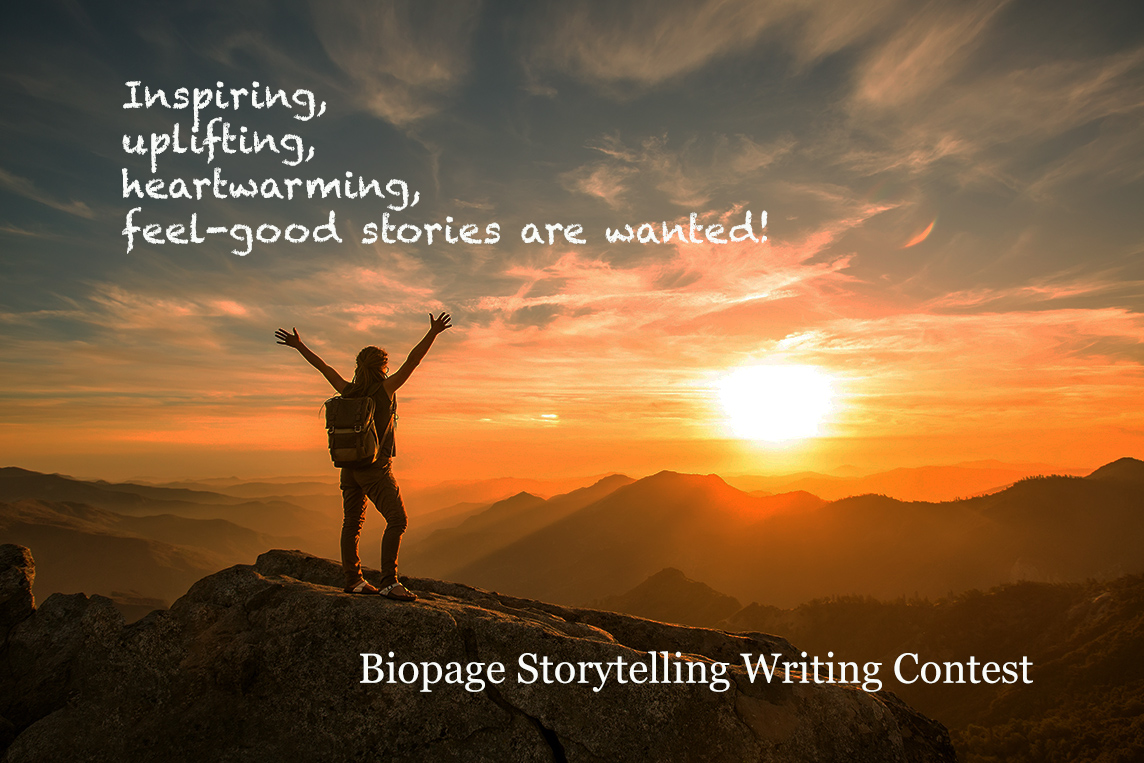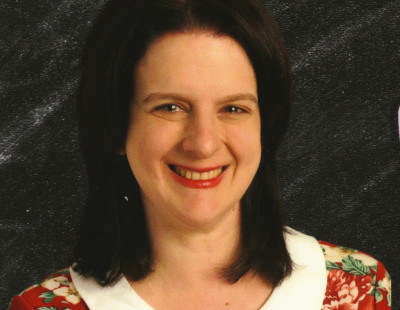A week before the temple trip, I sat through the uncomfortable interview, calm, maintaining eye contact with a priest as he asked me a variety of questions about my faith. I lied, proclaiming that I believed in the Book of Mormon and that I felt I was worthy to enter the temple. Even though it was deceptive, I didn't really feel guilty. My life was inseparable from the Mormon church. To publicly forsake it would mean losing all of my friends, not to mention the problems it would create at home. At that time, being honest wasn't worth all of the fights and difficult conversations that my parents and I would have to have. So I smiled serenely and thanked the priest as we shook hands. I spent the entire week dreading the temple trip. All too soon, I found myself in the parking lot where we congregated to carpool. I quite enjoyed the car rides to the temple. I got to be with my friends. I basked in the chatter and laughter, pretending that we were going somewhere else, somewhere normal. That illusion crumpled as I saw the white behemoth in the distance. The golden angel Moroni stood at the peak of a steeple, blowing his trumpet, mocking me. Objectively, Mormon temples are beautiful. Each one is unique, and ours in Atlanta had an art-deco sensibility with angular edges and symmetrical designs. Even the outdoor space had immaculately kept grass and decorative plants. But, even though they look so nice, they possess an oppressive stillness. Temple grounds are too perfect. The humid summer air swam around me as I stepped out of the van and made my way to the side entrance. The front glass doors, which I hoped to never walk through, were reserved for adults with full-memberships who were performing more sacred and mysterious ordinances. As a temple worker scanned my recommend, I felt like I was sneaking across some country border with a forged document. In the next room, old women handed out the clothing we were to be baptized in. I blushed when she handed me a size small sports bra in front of the men in my group. The purpose of our trip, “baptism for the dead”, sounds quite creepy, but it essentially means that we would act as proxies for people who were waiting to be baptized in the afterlife. We remained exuberant and continued to talk about whatever menial things we had discussed in the car as we changed. After we put on the clothing, my best friend and I looked in the mirrors and did silly poses. I thought we looked like prisoners in heaven wearing the white zip-up jumpsuits. They were always unflattering and uncomfortable, made with a stiff cloth that creased in awkward angles when I sat down. Everything we wore for baptism had to be white, down to the hair ties. We shuffled out into the baptismal font and fell silent. The room commanded reverence among my peers. The circular pool was a white stone of some sort with ornately carved oxen supporting it and a high domed ceiling stretched above. I sat down on the bench to wait my turn, trying to appreciate the architectural splendor to distract from my mounting anxiety. I felt out of place, fidgeting while everyone else sat peacefully, supposedly filled with the spirit. Eventually, it was my turn. My stomach dropped as I made my way into the pool. Lukewarm water slowly surrounded me as I climbed down the steps. My friend's older brother was performing the baptism, and I felt a twinge of awkwardness as he touched my back and held my hand. He recited a prayer and I took a deep breath before he dunked me underwater. I resurfaced, looking to the two men who were watching me for confirmation that I had been fully submerged. They nodded and we then moved on to the next person, the baptizer reciting the same prayer but with a different name. I kept my eyes closed as chlorinated water dripped down my face. I felt as though a dead version of myself was being baptized. As if the “I” that had been killed off so long ago was resurrected and doing this baptism with naïve, shining eyes and a faithful heart. Still, my current, alive brain was still there, thinking: this the most cult-ish Mormonism has ever felt. If I ever needed confirmation that my religion was untrue, it was found in these moments. After a few more names it ended, mercifully. I climbed out and walked to the changing rooms, the heavy fabric of the jumpsuit weighed down even further by the water. The outside air was cold, and it felt like every eye was on my soaking wet, dripping form as I walked. I wanted to evaporate. The heavy door of the shower room closed behind me, and I felt at peace for the first time that day. Taking off the cumbersome garments felt like shedding a skin, and I stood naked, back to my true self as I turned on the water to the hottest setting possible. It burned me red but I needed to get that disgusting, blessed water out of my skin and hair. I stood there as long as I was permitted, enjoying a sort of baptism of my own.
They say love can make you do strange and peculiar things. Others say it's exhilarating. But my husband, Will, and I think of ourselves as much too practical when it comes to life's important matters, such as love. And then we took a vacation to Belize. We read, researched, and planned. But only a few hours into our itinerary, we had to abandon it. As darkness snuck up on us, rain poured, and a windshield wiper on our tiny rental car didn't work. We dodged dogs and people moseying along the highway. The highway had no lights. Will suggested a place to spend the night but I countered, remembering reading about Hopkins Village. Little did we know, it would take us a white-knuckling, breath-holding 45-minutes to maneuver the four miles of unpaved, crater-filled so-called road. “Are you sure there is a village at the end of this?” Will asked. No, I wasn't. I panicked silently, wondering what I had gotten us into and hoping I hadn't made the entire situation worse. This situation being our vacation. I thought about shouting “We should've gone to Costa Rico!” but refrained. When the village's twinkling lights emerged ahead, I managed to breath. As we approached, the rain began to let up. The sea was straight ahead, and we arrived just in time to watch the full moon rising over the Caribbean. It was magical. So magical, it didn't seem real but more like an Elvis Presley movie set. The restaurant had thatch roofs, waves softly lapping, and this amazing moon emerging from the sea. And that was our very first night! Listening to the faint drumming sounds over a meal of fresh fish, the rain turned to a slow mist, melting the stress we had brought with us. And then we did something strange, peculiar, and exhilarating. We vowed to move to this little fishing village in Central America. In reality, there would be several more trips, extensive planning, and a five-year plan. But really, it was that first night, with the tropical breeze, delicious food, rum-drinks, and rain-soaked hair, that we fell in love with a place. We gazed at that moon and each other until our eyes succumbed to sleep. We wanted salt air, tropical moonrises, and authentic living. We wanted to fall asleep to the waves of the Caribbean Sea rather than the planes of Love Field. We wanted to ride on beach cruisers instead of sitting in traffic. We wanted beach walks not side walks. We wanted slow and relaxed instead of frantic and frazzled. We wanted Belize. Belize is a small little country about the size of New Hampshire with an abundance of nature—both sea and mountains. The rural country boasts of no fast-food or big box stores and it probably has more chickens than people. This developing country has much the romance of the wild west, complete with chaos, dangers, and take matters into your own hands' kind of place. And what an adventure it was! We decided to “go west,” buying and building. We planned to live in a little wooden cabana--Belize's version of a mobile home-- while building our dream beach house. We were so full of optimism. We embraced our setbacks and challenges with unabashed enthusiasm. No bed? We will sleep in a hammock. Can't find parts for the bathroom door? No problem. We will hang a hammock up for privacy like some hippies from the sixties. It could be months before any of furniture is ready? We'll reminisce our younger days—crates for nightstands…concrete blocks and boards for dressers. Four months later, we took delivery of bespoke tropical hardwood furniture. We took our time, we went slow, and soaked it all in. If we weren't blessed enough, it turned out the oldest bed and breakfast, our favorite vacation spot, with Lucy, our favorite beach dog, may be for sale. We'd known Lucy, the Irish wolfhound mixed with something much smaller, over the years and enjoyed our walks together to our favorite beach hang out. She trotted the two blocks to our place frequently. Some mornings we'd open our front door only to discover Lucy laid across it like a welcome mat. Lucy reminded us of our first dog—smart and funny. Will and I day-dreamed of Lucy and the inn being ours. We talked of importing expensive mattresses and soaps…of expanding the verandas and having romantic double showers. We drank dark rum. We strolled along the beach. We made love without worrying about rushing off to work. We were happy in this magical, quirky, little village. And, I could say “the end.” But it may not be fair to finish the story like that without also including that it may have been a rash decision to purchase a bed and breakfast to get a puppy dog. I could also add that we didn't do things the way they've always been done, upset the status quo, and made a whole bunch of people angry. No doubt, there were twists, turns, and stumbling blocks on our adventure. But even so, our goal of adventure-seeking was reached in record time.
“Oye, choca, que lindos tus ojos,” a middle-aged man called out to me from his small, beaten up car on the small dirt road I dread walking on so much. This was not the first superficial comment I had gotten that day. Most cat calls directed towards me came from large, unkempt men whose appearance alone caused me to feel fear and unease. I hurried without giving him a glance for fear of fueling the fire that was his acute need for attention that he may go to desperate measures to quench. All my life, I had never been allowed to play out on the street with my friends. I had never been allowed to do something as simple as walk to the little corner store half a block away to buy a few eggs alone. I always needed an adult by my side, and even that was not a guarantee of my safety. As a young child, I had been taught to divert as much attention as I could away from who I truly was. This was done by simple things such as never speaking English in public, never looking people on the street I did not know in the eye, never going out without an adult - preferably a Bolivian man, and by dressing in an attempt to hide some of my snowy skin. Even my best efforts at blending in could not keep all the attention away; cat calls were a common experience to me for as long as I can remember, and this put an inevitable fear in my mind of men. For this reason, getting as far away from that man on the street as possible was my only concern in that moment. As soon as I got far enough away for me to feel comfortable, I remembered the reason I was walking; my mom was waiting for me at the other end of the street to catch a “micro” - a public transportation bus. My mind settled instantly at the sight of my strong, beautiful, Bolivian mother, and all the fearful thoughts that seem to short circuit my brain disappeared for a split second that did not last anywhere near long enough. As soon as I reached my mom's side, she spotted the micro heading towards us. She reminded me to keep my bag in front of me since the risk of either getting something stolen or getting inappropriately touched were high if I did nothing to prevent it. Consequently, I stayed by my mom's side as she paid the bitter, overweight driver who had already stepped on the gas pedal again. No seats were available, so we stood in the overcrowded bus until we reached the “abasto” - a vast market in which one can buy fresh food; cheap materials; and agricultural goods. Immediately after stepping off the bus, I was hit with the seemingly origin-less, inescapable stench. I mindlessly followed my mom through the weaving market that seemed to never be the same as she searched for the perfect bunch of bananas for her banana bread. On the side of one of the endless numbers of small fruit stands, there was a little girl sitting under a truck in an attempt to escape the powerful sun that so violently beat on everyone who dared stand directly under its rays. She looked up from the corn husks she was playing with to observe the unusual sight of a white girl with green eyes. A teenage girl sat in the bed of the truck with one leg carelessly hanging off the side. Contrary to the child's simple way of achieving entertainment, her fingers vigorously flew across the glossy screen of her small cellphone. Unlike the child, the teenager barely glanced at me, and as soon as she saw that I was just another girl, her phone retook her attention. The little girl, however, was still mesmerized by my appearance, so I smiled which seemed to satisfy her as she immediately smiled back and returned to playing with anything she could find. Meanwhile, my mom had decided that she had found the bananas that she wanted, so she asked the middle-aged woman standing behind them how much they costed. The woman, dressed in faded clothes and a threadbare apron in which she kept the money she had earned, readily recognized my fair colored skin and naturally assumed that I was not Bolivian and, therefore, ignorant. She chose to take a chance at gaining more money by charging us extra; however, we were used to being charged extra a countless amount of times due to the fact that I was different. My mom convinced the woman to charge us the honest amount of how much the bananas were worth, and we kept walking through the abyss. After an hour, we got on a micro and returned home - one of the few places I felt safe. This short trip had not brought about any terrible events; however, the possibility of being taken advantage of due to irrelevant and superficial things was a constant likelihood in my life. I have grown up trying to hide who I am because of a fear of those who I do not know, but I have never seen it as a fully negative thing because being different means that I am special; the unwanted attention is simply due to everyone around me recognizing that. Maybe, just maybe, someday I will be free to be whoever I want to be without a threat. For now, I live as a minority in what I consider to be my own culture.









